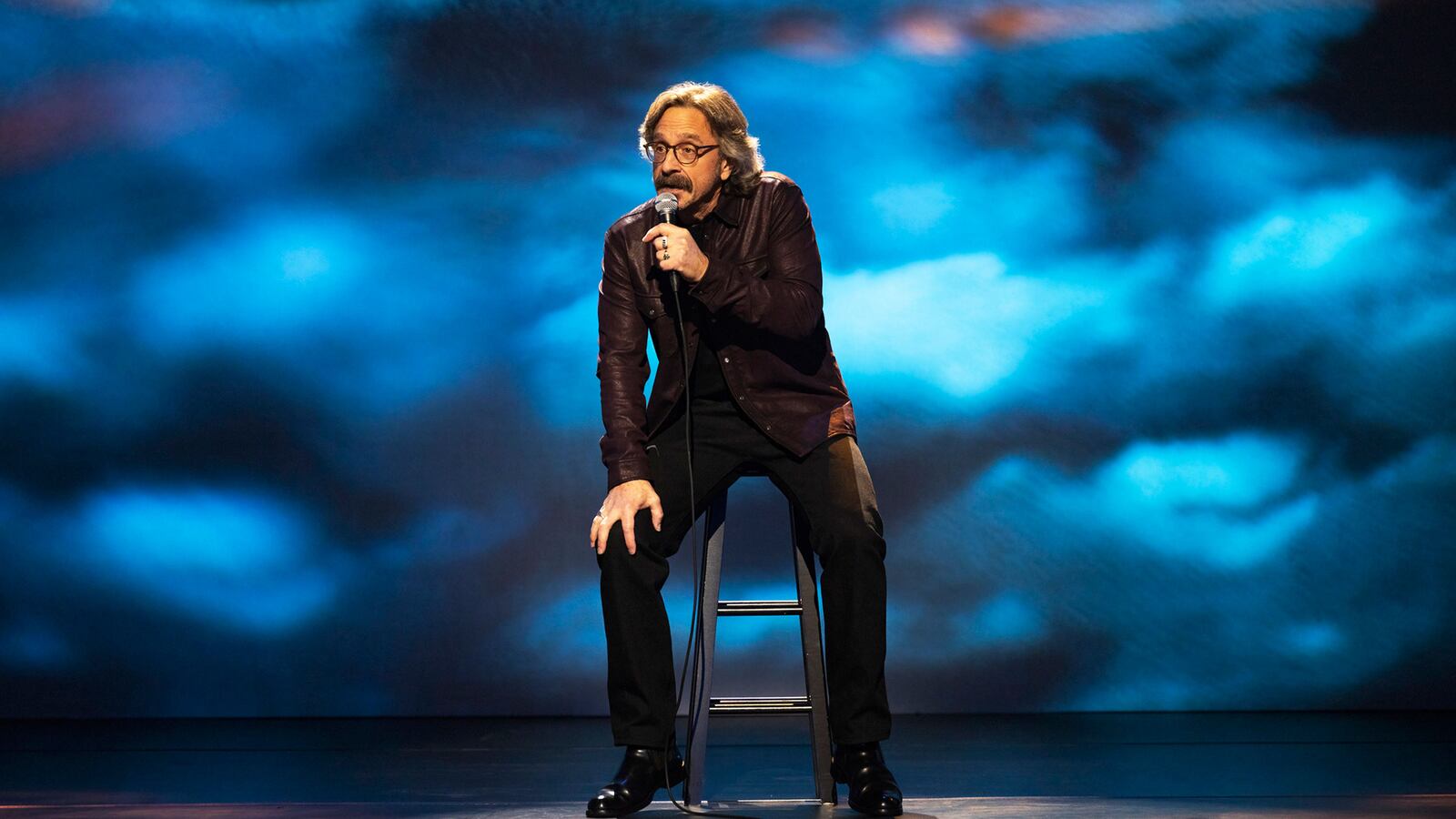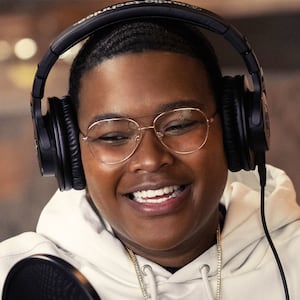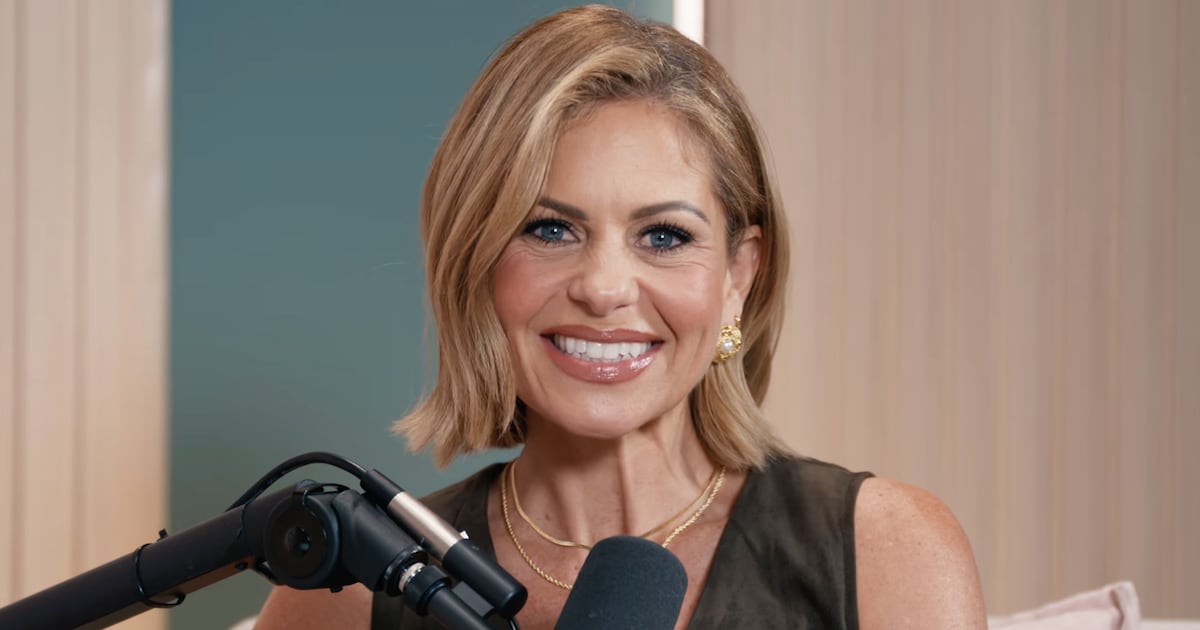Marc Maron is not the first comedian to mine laughs from the darkest moment of his life. But he’s now done it better than just about anybody else.
It’s been more than a decade since Tig Notaro walked on stage at the Largo theater in Los Angeles and revealed to fans that she had been diagnosed with breast cancer shortly after the death of her mother—an impromptu set she later adapted into the concert recording Live. A few years later, Patton Oswalt emerged from despair and found a way to joke about the sudden death of his wife, crime writer Michelle McNamara, in a special he called Annihilation.
And now there is From Bleak to Dark, Maron’s fifth hour-long special and his first on HBO, which premieres this Saturday night at 10 p.m. and finds the 59-year-old comedian grappling with the shocking loss of his partner, director Lynn Shelton.
For dedicated fans of Maron’s twice-weekly WTF podcast, this is not the first time we’ve heard him speak about what Shelton meant to him, first as a friend and collaborator—she directed two of his previous stand-up specials, several episodes of his Netflix show GLOW, and his finest film performance in Sword of Trust—and then as the woman he believed he would spend the rest of his life with.
But when Shelton has come up on WTF, the mention of her name has more often than not brought Maron to tears, especially as he came to realize how much her luminous presence meant to so many of the actors, writers, and comedians with whom she worked closely during a career that was cut far too short.
So it can come as a bit of a shock when he makes his first joke about her death.
It takes him a while to get there. As the title suggests, Maron starts with the bleak nature of our collective existence in 2023 before reaching into his own personal darkness. “I don’t want to be negative, but…” he says at the top, prompting knowing laughs from the crowd of fans with his setup alone. He finishes the thought with, “I don’t think anything’s ever gonna get better ever again.”
In the first half of the special, Maron zooms out to confront bigger-picture ideas like environmental collapse and a particularly inspired and provocative bit about rebranding abortion clinics as “angel factories” to appease the proponents of “Christian fascism.”
But then, about 30 minutes into the hour-long show, everything changes. As he teased on his podcast and confirmed in a recent interview, the first laugh Maron gets after broaching the topic of Shelton’s death is for something he had never said on stage before it came out of his mouth during the HBO taping.
“She passed away and it was the most horrible thing that’s ever happened to me—and I’m sure to her,” he jokes, seeming to surprise both himself and the crowd. “It was right there,” he adds, almost under his breath.
“I’m not really the kind of guy who’s like, ‘She’s dead! What are the bits?!’” Maron explains, welcoming us into his process of figuring out how to joke about something as terrible as grief and loss. He imagines other ways he could have worked through the issue on stage, from a Kaddish-inspired one-man show with “not one laugh” in it, to a comedy-free TED talk about the power of death.
From there, he finds a way to laugh at his own lowest moments of grief before turning around to roast the terrible advice he got from friends on how to get through it. A memory about the “mystical” experience of truly believing Shelton had been reincarnated as a hummingbird pays off with a perfect callback about her catching him having sex with a new woman.
Maron displays so much natural humor throughout this section that it’s hard to believe, as he recalls, that he worried such a momentous loss would render him incapable of being funny ever again. But he came to realize that “the humor that comes from darkness” is really the best type of comedy because it mollifies the terrible thing that no one wants to talk or think about.
Which is exactly what he pulls off moments later, when he shares the first joke he wrote about Shelton’s death. The idea came to him moments after the horrendous experience of saying goodbye to her in the hospital once she had already passed. Because of how upsetting that setup is, Maron spends four full minutes telling the story without eliciting any real laughs from the audience. When the one-word punchline hits, the tension shatters and the audience breaks into applause.
It’s a masterful moment that Maron openly admits he almost omitted because it was so dark. But ultimately, he knew that it had the power to “disarm” death in such a profound way that he had no choice but to go for it.
There’s another seemingly unrelated section earlier in the special in which Maron decries the “anti-woke” comics who complain that they “can’t say anything anymore.” But by the end of the hour, it’s clear that his material about death has served as a direct rebuke to comedians who believe that “edgy” jokes are ones that target marginalized groups. From Bleak to Dark proves that the riskiest thing you can do as a comedian is look inward and find a way to laugh through the pain.
For more, listen and subscribe to The Last Laugh podcast.








